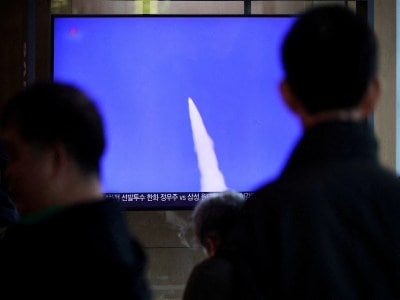The announcement of Tata Consultancy Services (TCS) laying off around 12,000 employees over the coming years has sent shockwaves down the Indian IT industry. TCS, which is regarded as the safe haven for IT professionals across the country, resorts to laying off human resources in favour of the global trends shifting towards AI. In the wake of the incident, ex-Tech Mahindra CEO CP Gurnani has declared the end of the ‘Sholay days’ of the Indian IT industry.
Gurnani, who is the current Executive Vice Chairman and Co-Founder of AIonOS, has said that “the sholay days of “kitne aadmi” the for Indian IT is over,” thus referencing the popular dialogue from the Bollywood blockbuster movie ‘Sholay’. Gurnani hinted at the closure of an era dominated by the metrics of manpower. Companies with larger workforces will no longer posses the advantage they once held in the earlier era of the IT industry.
Instead of focusing on manpower, Gurnani urges for a transformative shift towards an output and outcome-based pricing model. The statement has ignited widespread discussions within the tech community, especially as the IT industry navigates a rapidly evolving landscape that is negatively affecting the human talent.
Gurnani is a seasoned senior professional with over four decades of experience:
Gurnani, who is a seasoned senior professional with over four decades of experience in the technology sector, emphasised that the traditional approach of measuring success based on the number of employees or hours worked is no longer sustainable, thus contradicting Infosys founder Narayana Murthy’s claim of working overtime to achieve success.
With technological advancements in artificial intelligence (AI), Gurnani argued that the focus must shift to delivering measurable outputs and achieving specific business outcomes. This model could better align the interests of IT service providers and clients.
Gurnani’s leadership at AIonOS, a joint venture between InterGlobe and Assago, positions him at the forefront of this transformation. AIonOS aims to redefine business operations by integrating AI in to more technologies, thus enhancing productivity and profitability. The company’s approach has already drawn attention for its potential to create AI-native companies, blending human ingenuity with cutting-edge technology.
Gurnani addressed the broader effects of AI on employment:
Beyond pricing models, Gurnani addressed the broader effects of AI on employment. He acknowledged that introducing AI agents will lead to the automation of routine jobs. He suggested that this shift, while taking away conventional roles, will also create new, specialised roles, seeking a differently talented workforce.









